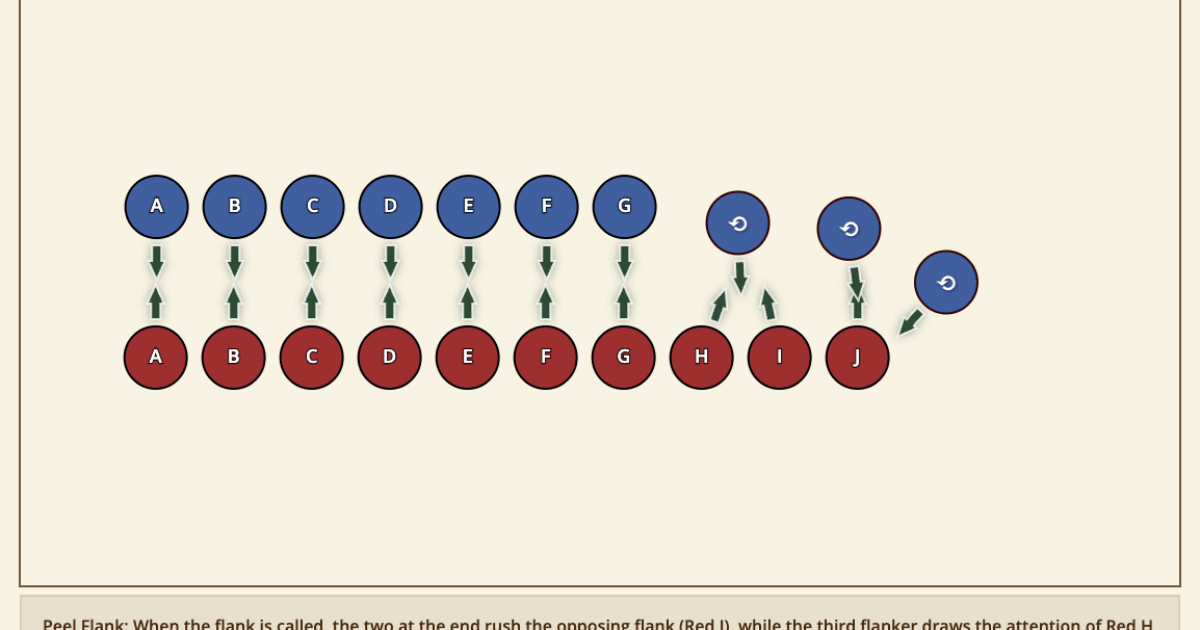A Route to Reach All
For those who are stuck
In our group there are always students of unusual situations, who, for one reason or another, struggle to make it through the Training Program in a reasonable time frame. After careful consideration, a new option for such students to progress has been developed. It is called the Route of Rigor, or, “RoR” for short.
How does it work?
RoR has been designed for fencers in need of an intense course of study, who are willing to commit to a unique style of learning. For example, returning crusaders, or fencers who have become stuck in the training program, yet have a deep desire to progress, fit this model.
Under the direction of the Captain, through a RoR Coordinator, students will be assigned a lesson each week. They will train, both mentally and physically, on their own, to learn the principles in the lessons. A mid-week check in will provide assistance and encouragement. They will then pass off the lessons with their RoR Coordinator as scheduling allows.
The RoR program will run twice a year, beginning in April & July. Over the course of 12 weeks a student can go up one rank from either Initiate to Novice, or from Novice to Swordsman.
Who can join?
Most fencers will still best be served in regular Friday night practices. Wanting to join RoR simply to get through the Training Program quickly, or an inappropriate fixation on skill, are not good reasons to join RoR.
Fencers who are in unique situations, are willing to seek out learning opportunities, commit to a self-guided path, and work hard, will be considered for the RoR path.
Those interested in joining RoR need to be approved by any combination of the following: two Swordsmen, two Officers, or one Master Swordsman, as well as a final approval by the Captain. This approval process ensures that a fencer is capable of handling this style of learning, and will ensure members of RoR continue to focus on the 4 Levels of Importance.
RoR! A Fire Within
Being stuck in one’s journey in fencing is frustrating. Especially when the desire to learn and grow is like a fire within. RoR is for these people. We wish them a good journey.
The Route of Rigor FAQ
What is the Route of Rigor (RoR)?
The Route of Rigor is a path for students of unusual situations to continue to progress through the Order of the Rose Training program, even though attending Friday night practice is not a reliable option. It is dependent upon the student’s own initiative to study and train outside of practice.
Does it replace the Training Program?
No. This is not a replacement or an advanced version of the Training Program. The same lessons will be provided for RoR students, and the same standards of Safety, Honor, Attitude and Skill will be expected.
Who does this benefit?
The RoR program is designed to benefit students of unusual situations (S.O.U.S’s). These S.O.U.S’s who, constrained by life, work, impending college/crusade departure, and other situations, may never get the chance to earn the rank of Swordsman. The RoR can provide hope for S.O.U.S’s to strive towards becoming a Swordsman and may increase overall retention of Swordsmen. It can also provide review training for Swordsmen and Officers.
However, it also benefits all the members of the Order of the Rose. When we take the time to help a struggling member we learn and grow ourselves. Also, someday that member will be empowered to strengthen the Order in return where as before they could have fallen away from the group entirely.
How does the Program work?
The RoR program is run twice a year starting in April and July. Over the course of 12 weeks a student can advance one rank, Initiate to Novice, or Novice to Swordsman. Each week, students will be assigned a lesson and train both mentally and physically at home enough to learn the principles and skills in the lesson. They will then pass off the lesson with a RoR Coordinator as scheduling allows. Additionally, there will be a mid-week check in with a RoR Coordinator to receive assistance and encouragement.
Why should we consider this model of learning comparable to Friday night model?
Our current Friday night model of learning asks for a person to be in attendance during a lesson for that lesson to be checked off. They are then responsible to implement what they have learned during the rest of practice and during Open Workshops.
In the RoR model students will be expected to put in sufficient time for physical practice and mental practice. They will expected to put in the practice they would have gotten at practice, throughout the week at home.
How can someone join the RoR program?
To join the program, a student must be recommended for it. Before a RoR session begins, a student must gain the approval of a combination of the following: one Master Swordsman, 2 Officers, or 2 Swordsmen. These approvals must be provided to the Captain, either verbally or in written form, before a conversation with the Captain can occur. The final approval for a RoR candidate will come from the Captain.
To gain approval, fencers need to have a conversation with those who can approve. In that conversation it should be determined if the fencer is in a unique situation that prevents a traditional course of learning. The fencer should demonstrate a sincere willingness to seek out learning opportunities outside of practice. Such as having a plan to practice with the Captain, a RoR coordinator, Swordsmen or friends, that relies on the fencer’s initiative, not external motivators. Fencers also need to be able to express their willingness to commit to a self-guided path, and communicate effectively that they will work hard. A final conversation with the Captain will determine if a fencer is ready for RoR.
For those involved in the Approval Process
Those wishing to join RoR are striving to become Swordsmen. The Swordsmen should understand what it takes to become one. In the end a candidate will be measured against the 4 Levels of Importance, and that is what the Swordsmen should base their approval criteria on. The following may be a few helpful guidelines.
Some example reasons of why you might approve someone are:
- They were in the Training Program before or have had previous fencing experience and need an intense refresh.
- They have fallen through the cracks and have become stuck in the Training Program.
- Sincere desire to become a Swordsman, and uphold the 4 Levels of Importance
- They have a fire within driving them towards mastery compatible with the ideals of the group
- They are internally motivated, despite their circumstances, to own their course of learning
Some example reasons of why you might not approve someone are:
- They are inappropriately fixated on the skill of fencing
- They haven’t developed an understanding of the meaning of Swordsmanship
- They want to beat someone else through the lessons
- They want to hurry through the lessons, ‘just to get them over with’
- They aren’t capable of learning on their own
- They assume, based on your relationship, that you will approve them
Please remember that these fencers are our friends and family. Those with approval power are not trying to stop anyone from learning. They are advocating for the student. Sometimes that will lead to an approval. Sometimes that will mean advocating for them to take a little longer in their journey by sticking with the Friday night course. In each case it should be carefully considered what is best for both the student and the Company, as the Swordsmen, Officers, and Captain discuss each candidate together.
What counts as Physical Training?
Physical training should be considered practicing the lesson enough to reasonably demonstrate the skill or principle. Some principles/skills will take longer to learn, and others less time. Students should take the time it takes to learn the skill, seeking out assistance when required.
What counts as Mental Training?
Mental training should be a thoughtful, focused introspection on the assigned lesson and will include actually reading the lesson from the website. Journaling about the lesson is strongly encouraged.
Other mental training could include, answering questions posed by Coordinators, asking/discussing their own questions with other fencers, recording their thoughts after physical training and reviewing them with a mentor or other Swordsmen. Some form of mental training must be demonstrated in order to pass off a lesson.
How much leadership effort is involved?
Most of the effort will be required of the student, hence the Rigor. Coordinators and Officers will have minimal administrative responsibilities. The Coordinator will provide some assistance throughout the week to ensure the standards of the 4 Levels of Importance are maintained, and that RoR students are receiving guidance and help that is traditionally available. As with traditional students, Officers will continue to test RoR students in their standard Rank Reviews.
If a RoR student attends a regular practice what do they do during Lesson Time?
During beginning instruction, RoR students can pass off lessons with a Coordinator and then jump in with their rank group to practice drills and participate in discussion. This will help them acculturate and practice with others of their same rank.
Who is running the Program?
All training and scheduling are under the direction of the Captain. That includes the RoR program. For administrative ease during this initial pilot run, Kane will help coordinate the program, while Captain Shay acts as a participant to ensure that it is running as intended. During this test run Kane and Shay will gather data to be presented at the end of the course to the Officers Corps and any who are interested.
As a Swordsman, how can I support?
In the future we will want a few more RoR Coordinators to help with training and administration outside of practice. If you are interested in becoming a Coordinator you will need to complete two sessions of RoR, both the Initiate and the Novice levels. This will help you understand a students position and needs in an empathetic way.
If you are not interested in coordinating, please take time to consider the approval process and what kinds of questions you could ask a fencer to understand their desire to join RoR.
It would also be helpful if you would consider being an occasional training partner for RoR students. Potentially volunteering your time to train with others they can attend practice and working with them on what ever lesson they are learning.

